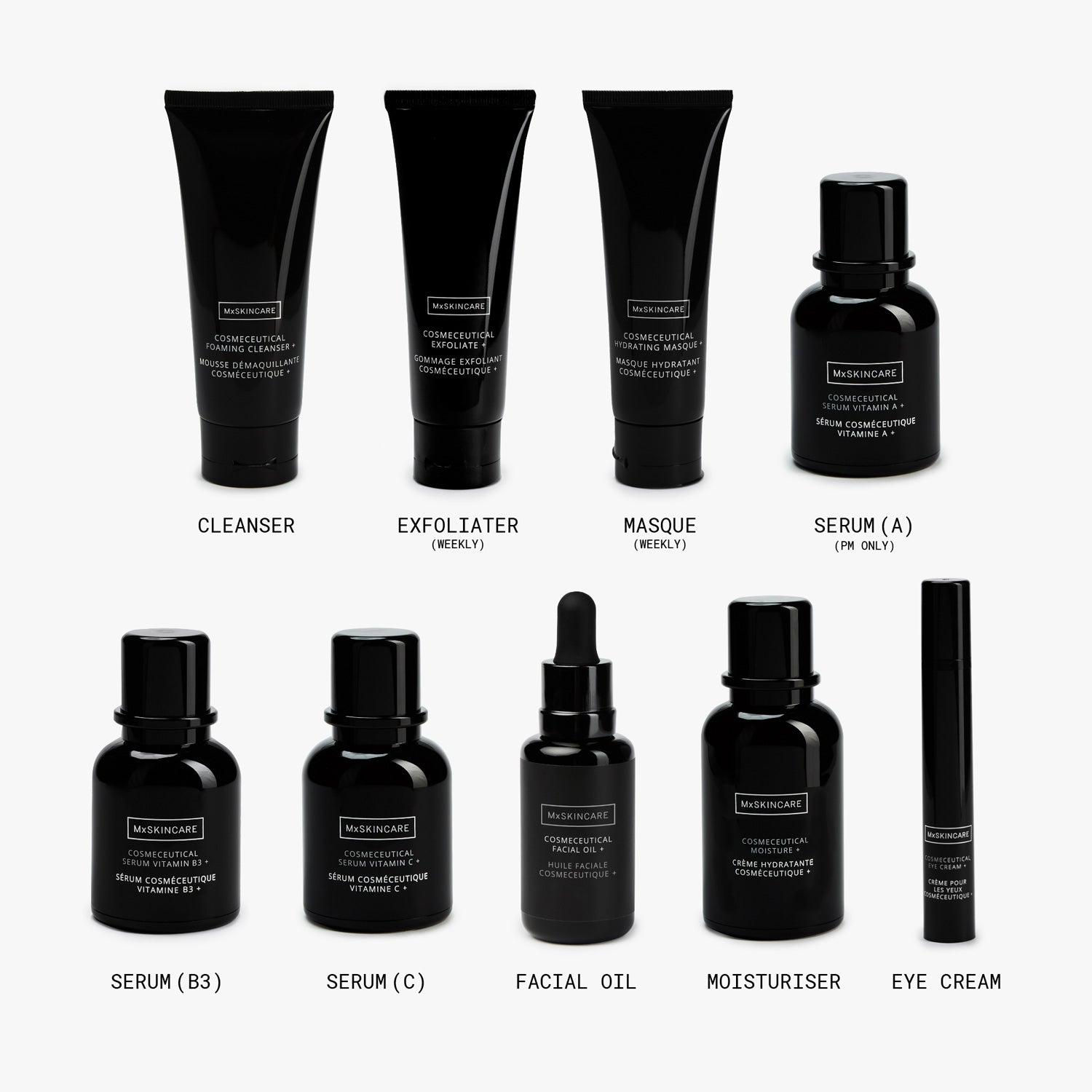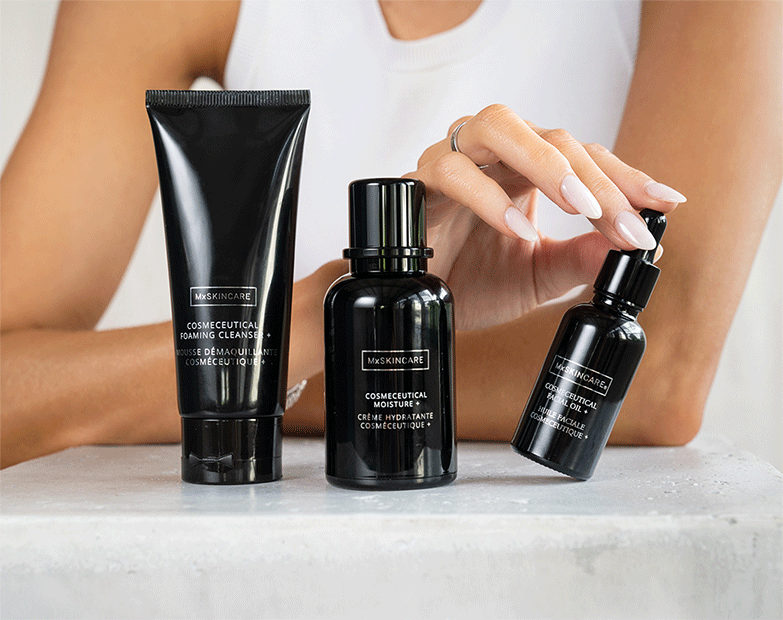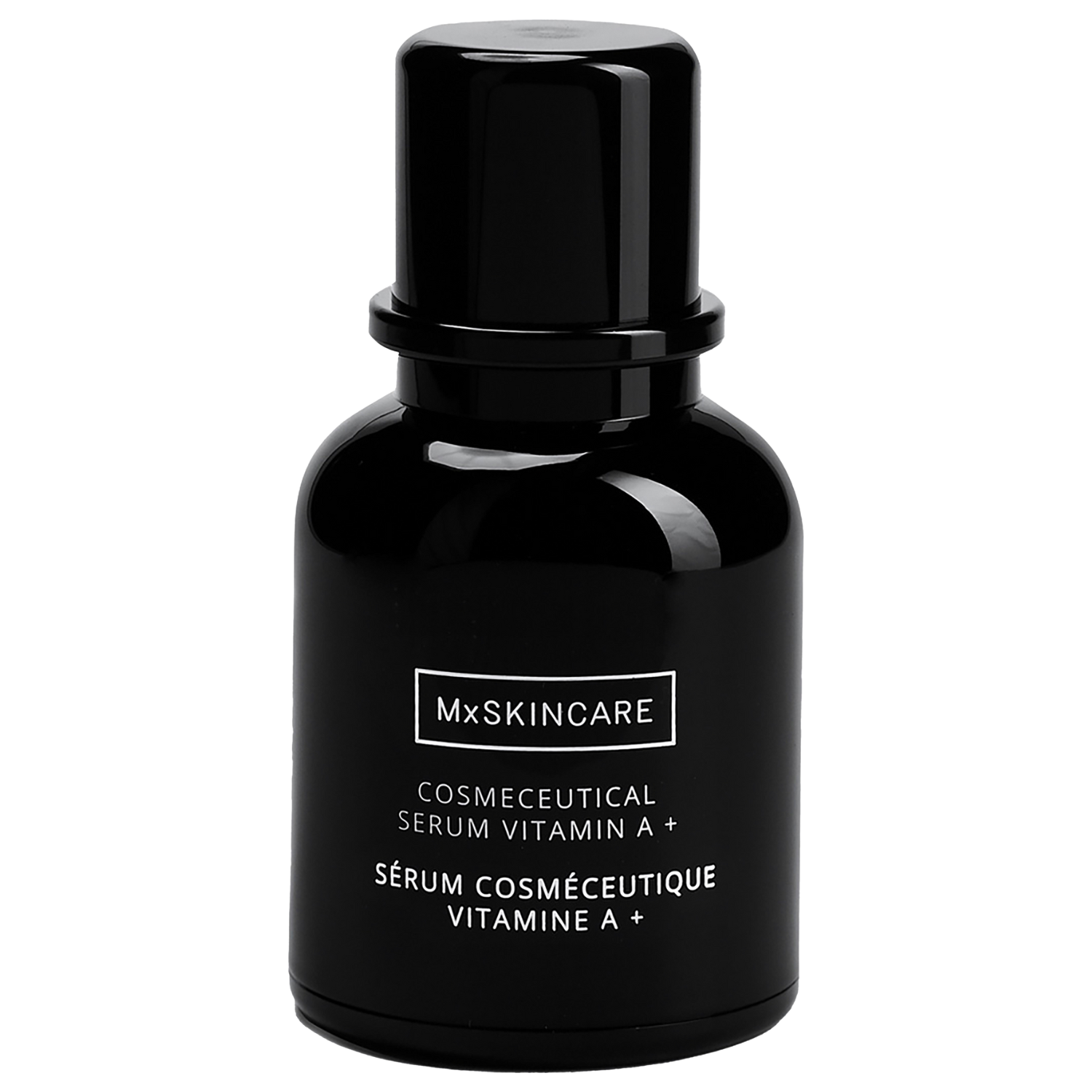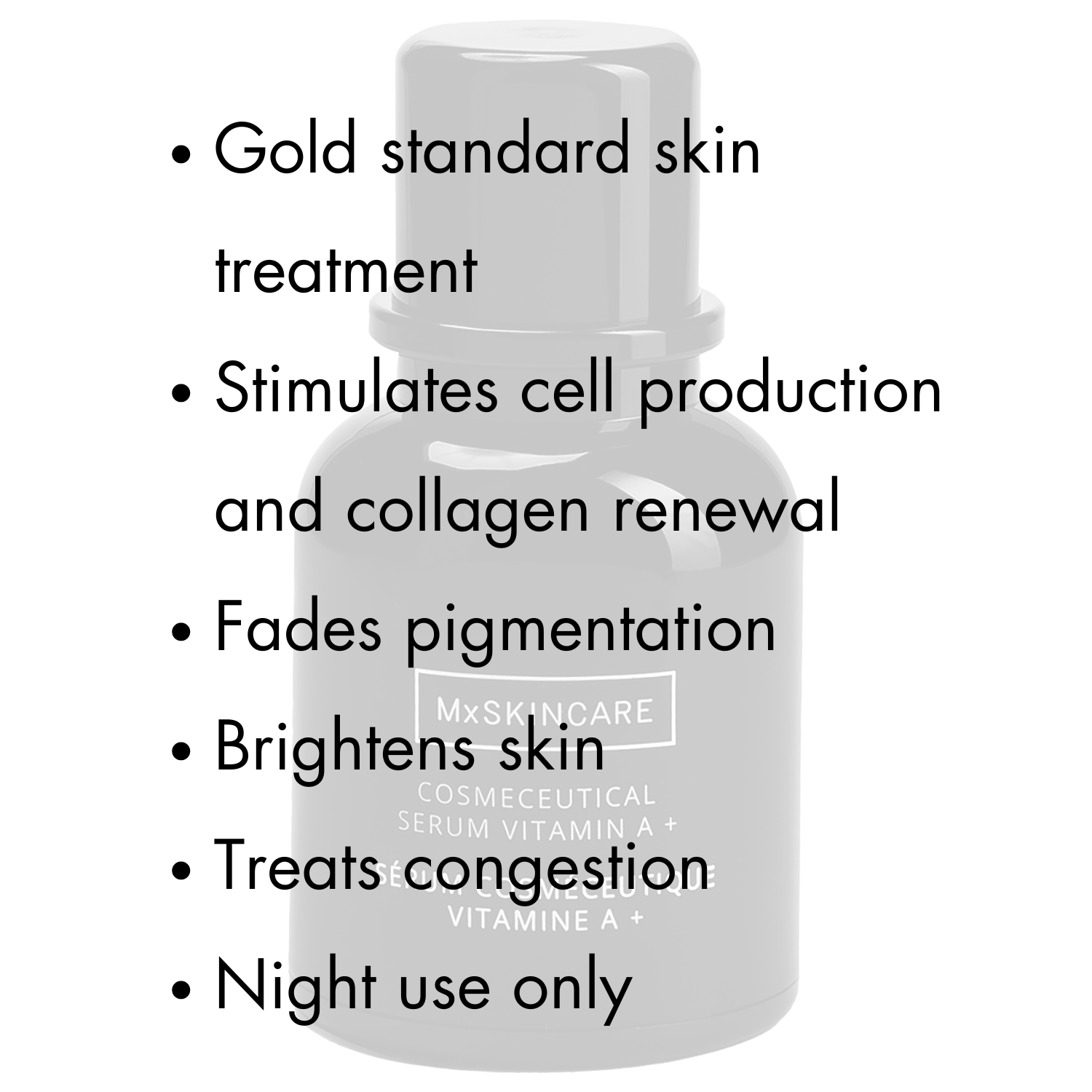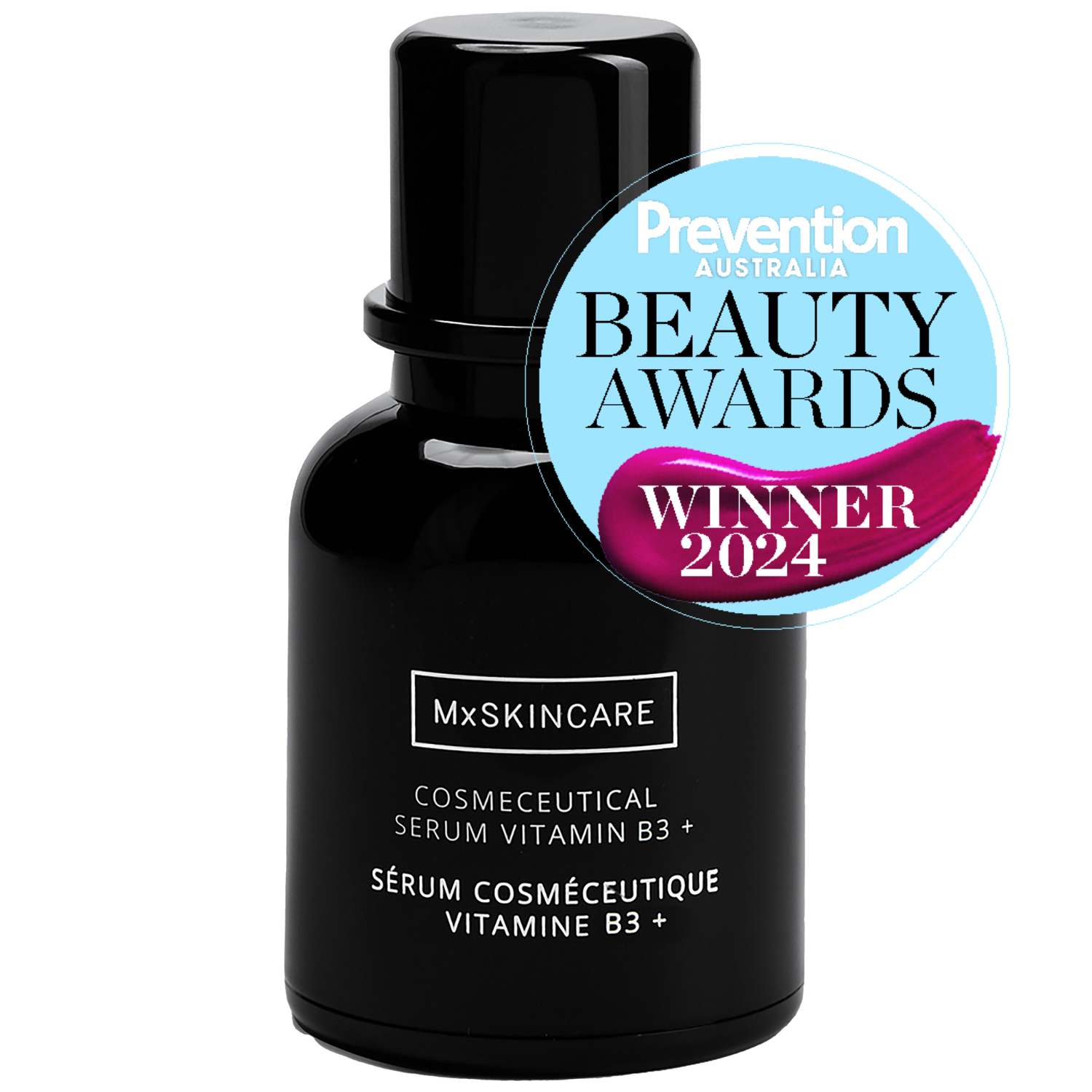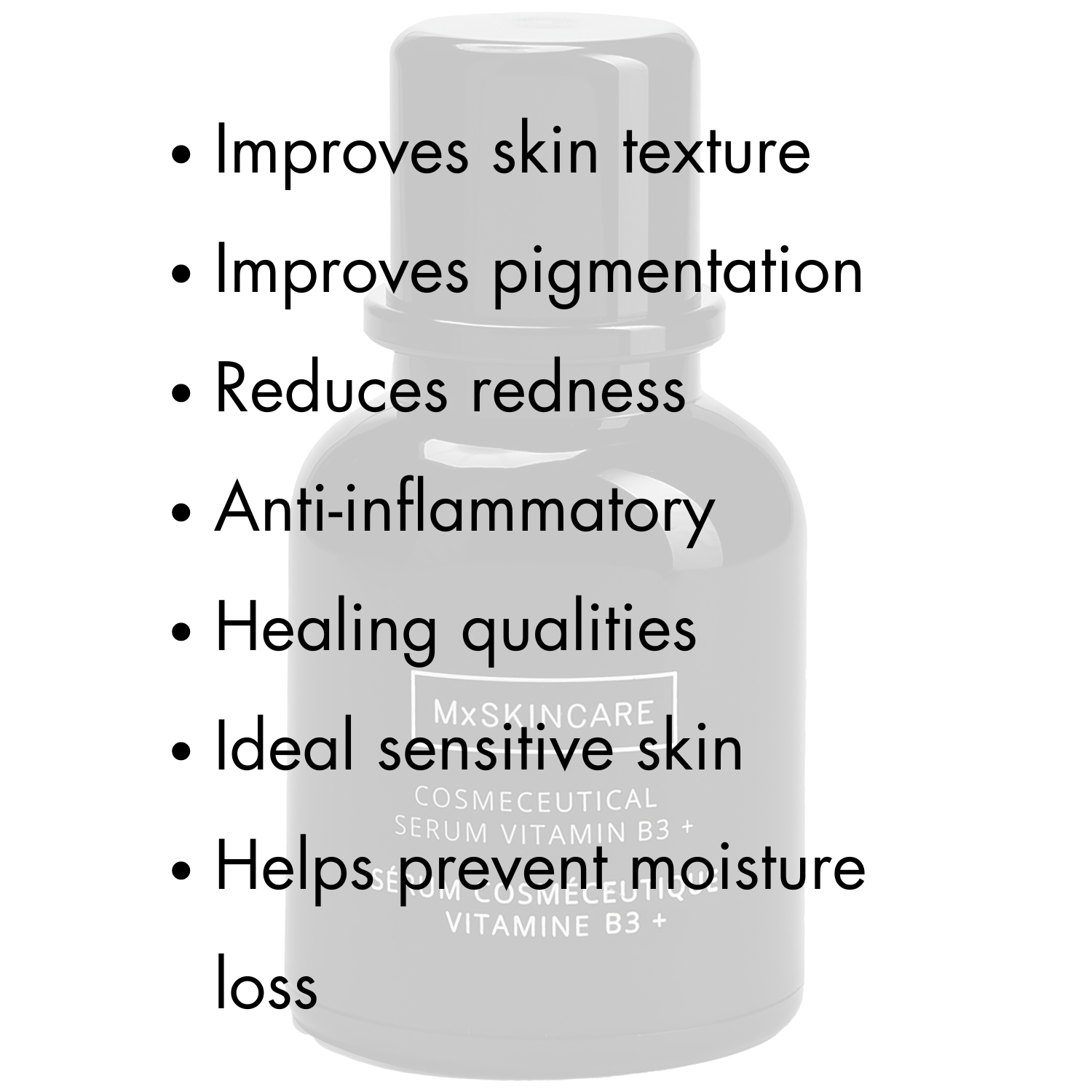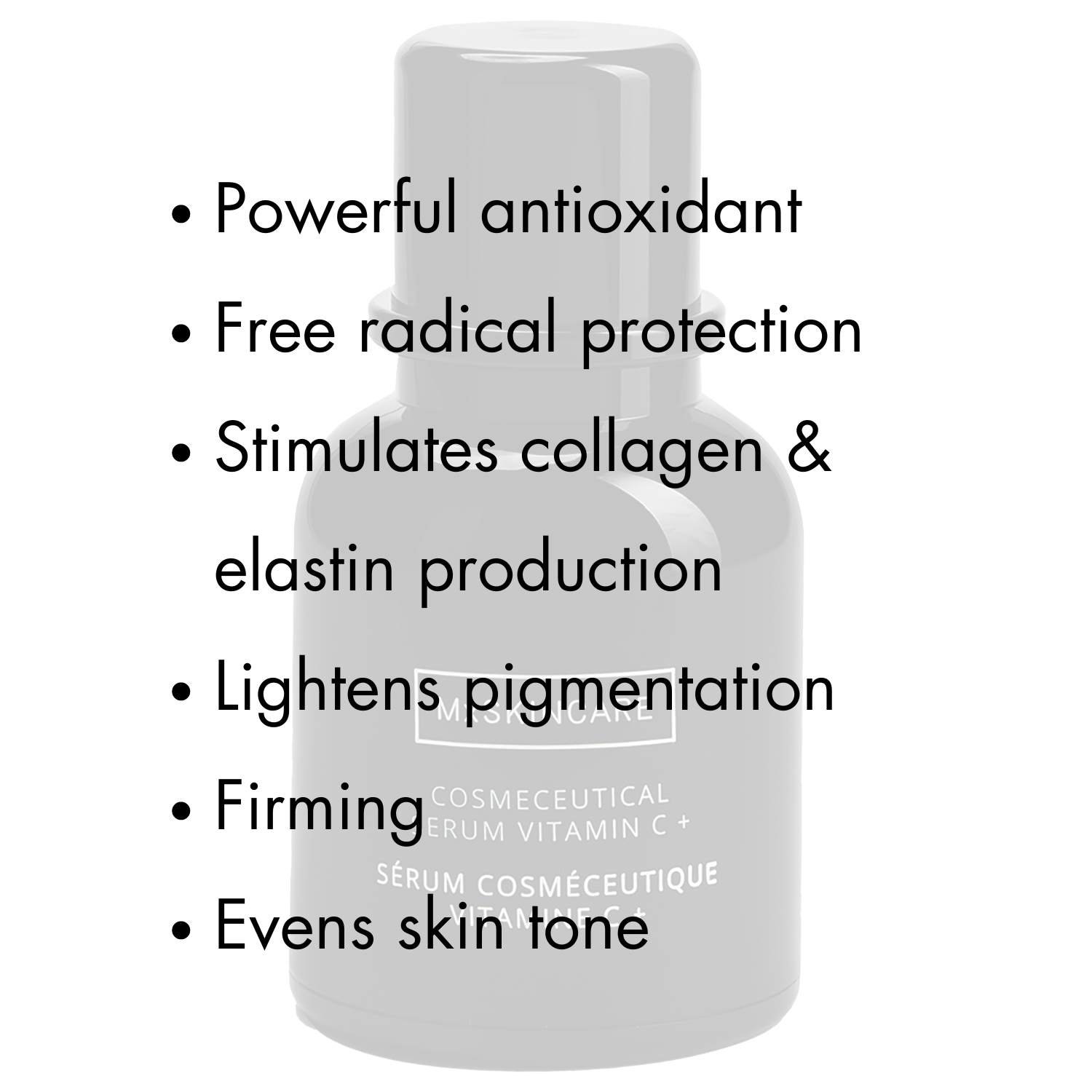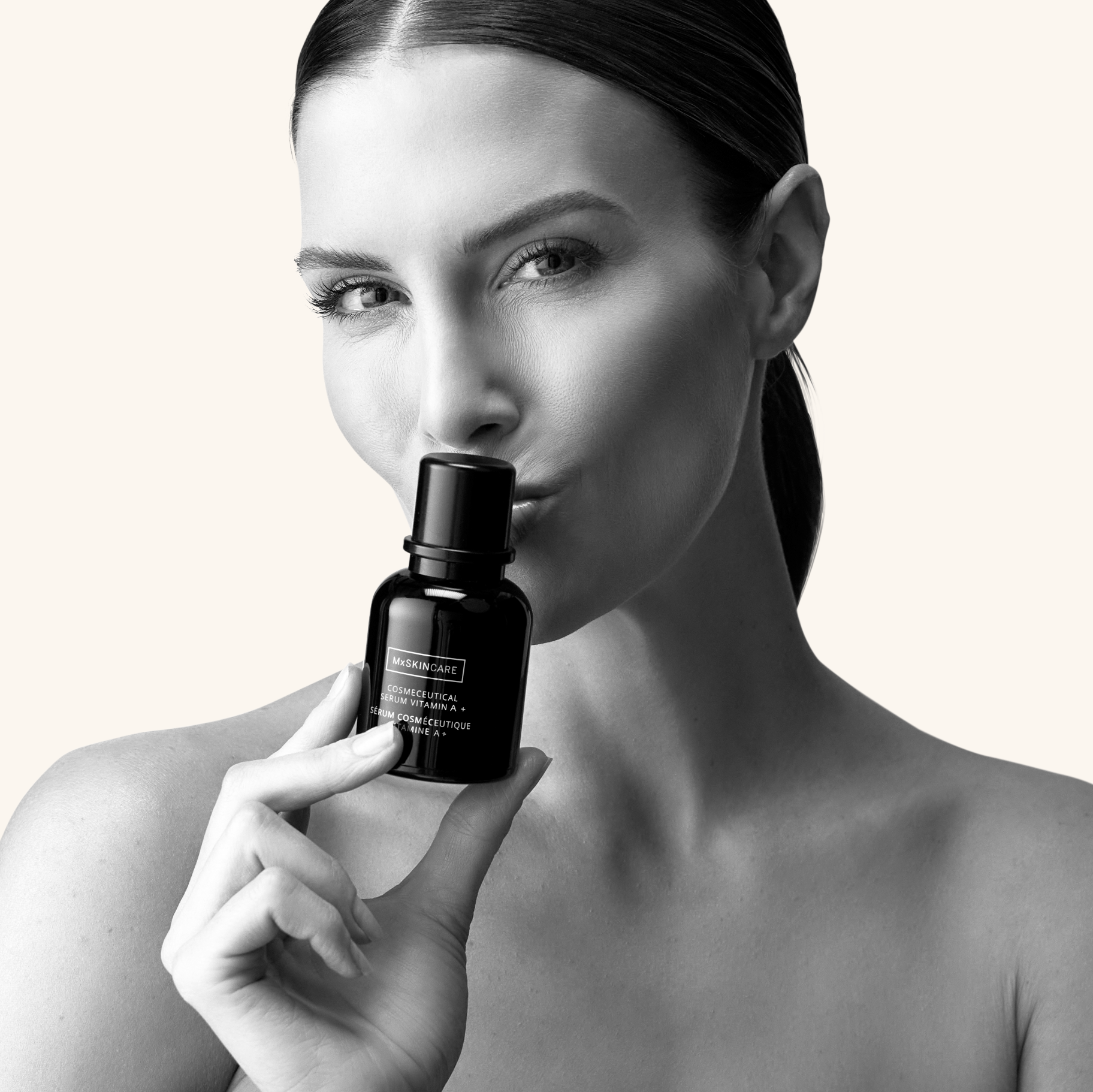
SERUM VITAMIN A +
VITAMIN A - WHAT IT DOES & WHY
Sometimes it’s the smallest changes that have the biggest impact. If premature lines, pigmentation, acne, scarring or dull, lifeless skin is a concern for you, a single skincare ingredient could make all the difference.
We’re talking about Vitamin A, an essential nutrient that powerfully supports skin health by stimulating the production of new skin cell
Vitamin A boosts the rate of cell turnover in skin to:
* Improve tone and texture
* Exfoliate dead surface cells to reveal fresh, glowing skin
* Fight acne by decreasing oil production
* Help smooth lines while also preventing new ones from appearing.
Talk about multi-purpose.
There is another, all-important benefit to Vitamin A. As we age, skin gets thinner. with less bounce and elasticity. Vitamin A counters this by expanding skin cells to restore thickness and strength.
In fact, a 2015 study found that just four weeks of Vitamin A topical treatments increased skin thickness, with a significant reduction in facial lines after 12 weeks.
First of all, let’s talk terminology.
Vitamin A is also known as retinol and the term “retinoids” refers to the various molecules derived from Vitamin A. Retinoids, including retinyl palmitate and retinoic acid, are manufactured forms of Vitamin A that are used in skin creams and serums.
Of these, retinoic acid - available on prescription from doctors and dermatologists - is most effective when it comes to treating skin, but side effects can include peeling, redness and sun sensitivity.
Now, what if we told you that you could get all the skin-boosting benefits of retinoic acid, minus the irritation?
Introducing hydroxypinacolone retinoate (HPR) - a next-generation form of Vitamin A. It works in a similar way to the prescription retinoic acid, without causing irritation, and it also happens to be the active ingredient in Mx Skincare Cosmeceutical Serum Vitamin A+.
There you have it - a safe, effective and non-irritating form of Vitamin A.
Introduce a Vitamin A serum into your regime at night, when skin is in repair mode and most receptive to nutrients. Vitamin A is proven to improve the visible signs of ageing, but also works as a preventative. That means even 20-something skin will benefit from an evening dose of Vitamin A.
Apply about a pea sized amount (less is more when it comes to Retinols) to a cleansed face, neck and decolletage avoiding direct contact with immediate eye area and eyelids. Wait a few minutes before applying Moisturiser. Use twice weekly for the first week and slowly increase to every night as skin adjusts. This can take a week or two. After that, go right ahead and use every night to optimise results.
Daytime application of Vitamin A is not recommended as skin is more sensitive to UV rays. You should always use an SPF sunscreen during the day when using vitamin A. And finally, despite the low risk posed by topical Vitamin A, it is generally recommended that pregnant women, or those planning a pregnancy, avoid use.
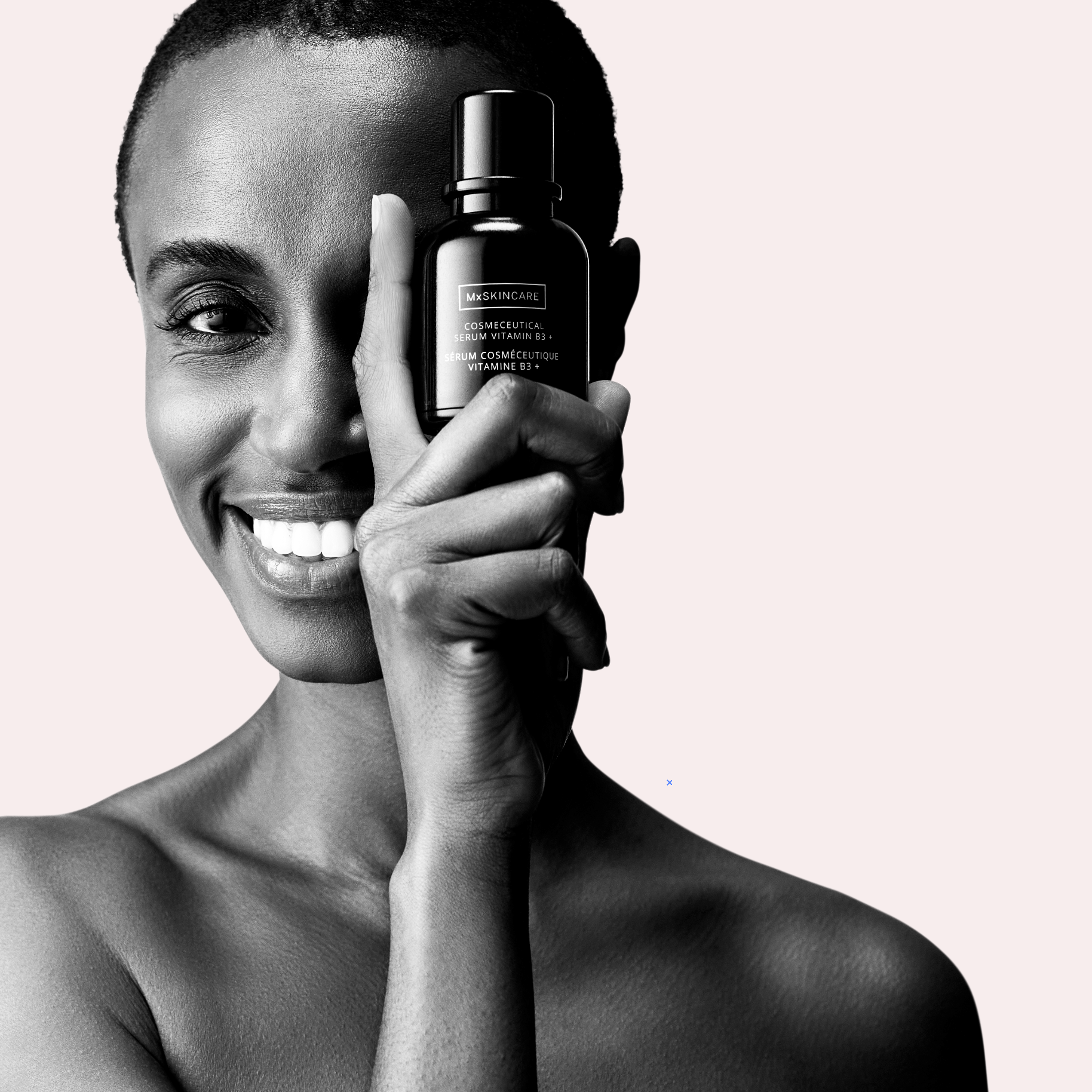
SERUM VITAMIN B3 +
WHY ADD VITAMIN B3 TO YOUR SKIN?
When it comes to skincare superstars, they don’t come much brighter than Vitamin B3. Also known as niacinamide, nicotinamide and niacin, this water-soluble vitamin offers multiple benefits when it comes to skin health.
For everything from blemishes and redness to pigmentation and premature lines, Vitamin B3 is a miracle worker, and here's 5 reasons why...
Used daily, Vitamin B3 has a stabilising effect on skin barrier function, which means skin is better able to retain moisture.
Those increased hydration levels make for glowing, healthy-looking skin.
Vitamin B3 is particularly beneficial for skin which is prone to dryness.
Worried about dark spots and patches?
A daily application of Vitamin B3 can help by slowing the transportation of melanin (natural pigment) to the skin’s surface, resulting in a clearer complexion.
Research has shown that Vitamin B3 can lighten dark spots in as little as four weeks.
Just remember that sunscreen is essential, even when it’s raining outside, to prevent further damage.
Evidence suggests that topical Vitamin B3 can increase production of ceramides.
And that’s a mighty good thing.
Ceramides are lipids (fats) in the uppermost layers of skin that maintain the skin barrier, rather like mortar between bricks, if bricks are skin cells.
A stronger skin barrier means skin is less prone to water loss, so is better hydrated, firmer to touch, plumped, healthy and glowing, with fewer lines.
Vitamin B3's legendary anti-inflammatory properties make it a go-to for sensitive skin and conditions where redness and inflammation are a concern, such as rosacea, eczema and acne.
In fact, several studies have documented niacin’s positive effect on acne and in regulating oil production, the over-production of which goes hand in hand with acne, blemishes and breakouts.
Vitamin B3 is also a non-irritating option for those with dry or sensitive skin. It is also known for its healing qualities, is antibacterial and often referred to as a skin anti-biotic.
While sunscreen remains the gold standard defence against UVA & UVB rays, Vitamin B3 not only aids in shielding skin from the sun's infrared rays, but helps repair skin from the effects of UVA & UVB rays.
But what you might not realise is Vitamin B3 can also help protect skin from blue light - also known as high-energy visible light (HEV), blue light comes from both the sun and the screens of electronic devices.
Too much blue light exposure can cause pigmentation in skin and skin cells to shrink, or even die, all of which can lead to premature ageing.
Your best defence? Limiting screen time and factoring Vitamin B3, protective Vitamin C and sunscreen into your daily skincare regime.
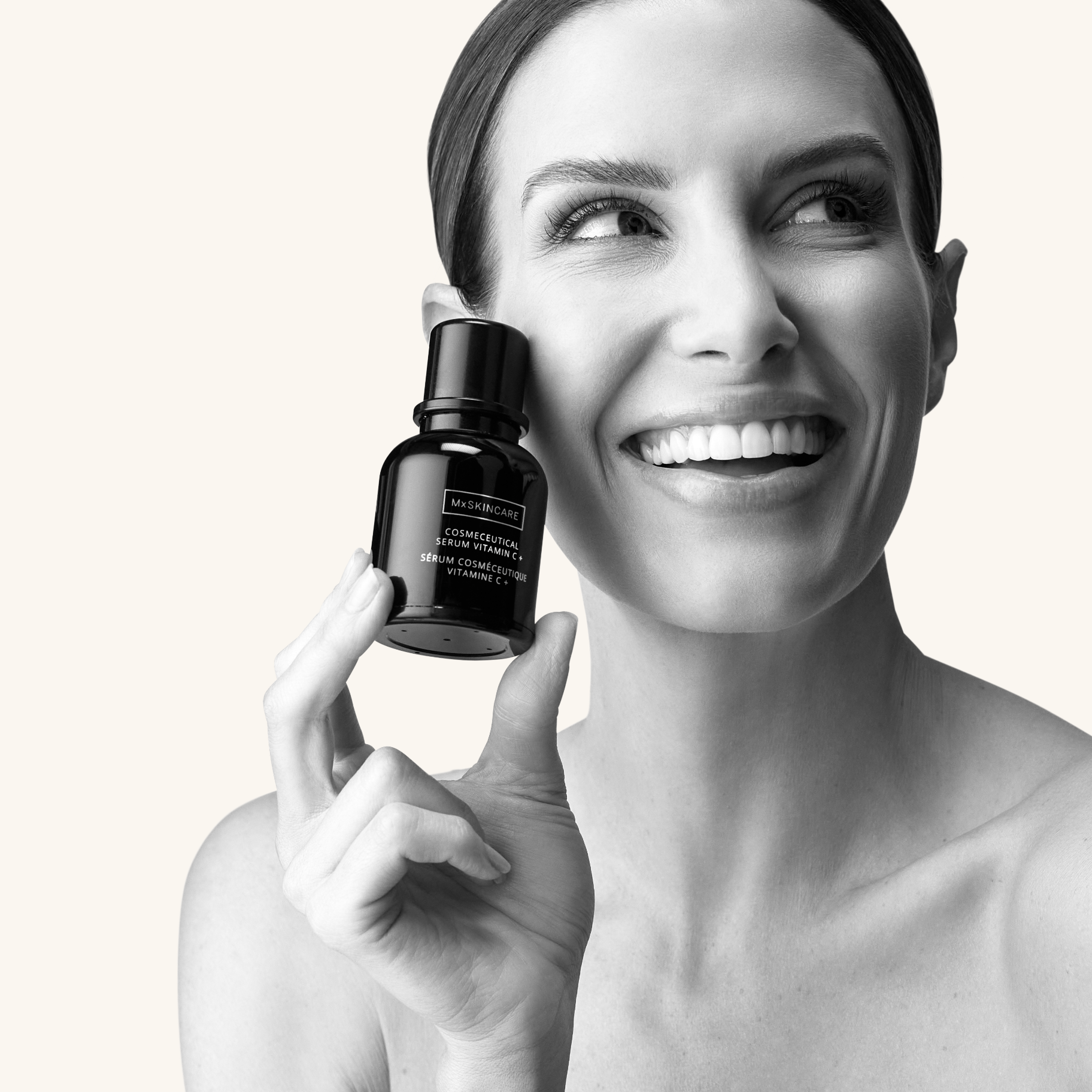
SERUM VITAMIN C +
LIFE’S BRIGHTER WITH VITAMIN C SERUM
Sun damage, blemishes, lines or loss of firmness talking the glow out of your skin?
We’ve got two words for you: Vitamin C. Put this powerhouse antioxidant on active duty and your skin will love you for it.
For noticeable results, choose a Vitamin C-based serum, scientifically formulated to penetrate the deeper layers to energise skin at a cellular level.
Vitamin C (or ascorbic acid) is a potent antioxidant that works to protect skin cells from air pollution, sun damage and other factors that can prematurely age skin. Our bodies need Vitamin C to form muscle and collagen, which assists in wound healing and keeping skin looking plump and firm.
The catch is, Vitamin C is water soluble, which means it cannot be stored in the body for any length of time. So, even if you eat a Vitamin C-rich diet, there is no guarantee it will reach the skin.
Using a topically applied serum is the most effective way to capitalise on the skin-boosting benefits of Vitamin C
As a potent antioxidant, Vitamin C protects skin from free radicals, the unstable oxygen molecules that break down skin cells and cause premature ageing.
When we are young, Vitamin C levels in skin’s upper layers are naturally high, and gradually decline with age. Exposure to the sun and pollution can speed up this process, leaving skin looking and feeling dull, uneven and less firm.
The good news is, using Vitamin C in your skincare can help prevent and even reverse damage, so skin looks and feels healthier.
It does this by:
* Decreasing transepidermal water loss, so skin retains more moisture
* Reducing inflammation to combat redness
* Controlling melanin production to fade sunspots, age spots and melasma (an overproduction of melanin)
* Reducing the appearance of under-eye circles by plumping and hydrating the under-eye area
* Increasing collagen production to boost skin elasticity
* Protecting against future sun damage. Research shows that when used over time, topical Vitamin C builds up in skin to boost UV protection.
Vitamin C is a highly unstable molecule that is notoriously difficult to formulate. That’s why it’s important to know what to look for when buying skincare. The source of the Vitamin C a product uses, its concentration and its delivery system will dictate how effective that product is.
Mx Cosmeceutical Serum Vitamin C+ is formulated using a lipid-soluble compound that allows ascorbic acid (Vitamin C) to easily enter the cell membrane. Once inside the skin cell, ascorbic acid boosts collagen and elastin production, and controls melanin production, to improve the look and feel of skin.
Once ascorbic acid is applied to skin, it is immediately absorbed, cannot be washed off, and stays on the skin for up to 72 hours – so it will also give your sunscreen a boost.
In the morning, after cleansing, apply Vitamin C as your first layer of sun defence, and to fight free radicals during the day. Once the serum has soaked in, layer on moisturiser, eye cream and finally, sunscreen.
Vitamin C is suitable for all skin types and making it part of your daily skincare regime will reap visible rewards. Rest assured that Vitamin C is safe to use with other active ingredients, such as retinols (Vitamin A), alpha hydroxy acids, and sunscreen.
Vitamin C can also be applied at night, to aid in skin repair.


